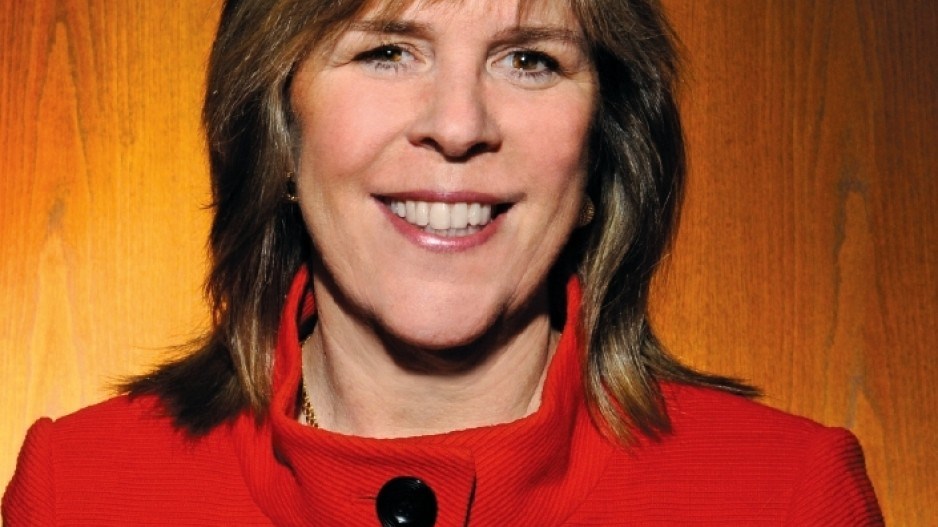With above-average economic growth expected in B.C. over the next few years, investors and businesses are increasingly looking at Canada's Pacific Gateway as a key market to expand.
Economic forecasts from the big five Canadian banks suggest that B.C. will continue to be Canada's main economic driver and will remain one of the country's fastest-growing provinces, after Alberta and Saskatchewan.
"Western Canada continues to grow at rates that we're not seeing elsewhere in North America," said Curtis Johansson, director at private equity firm CAI Capital Management. "For firms like ours, you tend to go where the growth is."
B.C. continues to attract investment that's expanding its economic diversity and creating new jobs. According to the Major Projects Inventory, more than $236 billion in large projects are being proposed and under development in B.C. Two-thirds of the investment is being made outside of the Lower Mainland. Some of it has the potential to transform communities, particularly along the north coast, where a quarter of investment is going.
"I think Western Canadians are benefiting from the influx of capital that's resulted from people looking for commodities," said Johansson. "B.C. benefits from that. All those things contribute to B.C.'s growth in excess of the Canadian average."
That investment's potential spinoff benefits are attracting attention from across the country and around the world. Aside from national franchises like Tim Hortons opening locations in up-and-coming communities in northern B.C., more American firms are set to open all over the province.
Target, the Minneapolis, Minnesota-based retail giant, plans to open 18 stores in B.C. Seattle-based retailer Nordstrom also plans to open its largest Canadian store in downtown Vancouver, once it completes renovations of its Pacific Centre location, which Sears Canada is vacating.
These new entrants to B.C.'s market will expand Business in Vancouver's annual list of the biggest national and global companies operating in the province. This year, more than one-third of the list includes companies based outside of B.C., many of which are large international retailers employing tens of thousands of people in the province.
But for Canadian firms, too, B.C. remains a key market for growth.
Joanne Gassman, BMO Bank of Montreal's senior vice-president for B.C. and the Yukon, noted that the bank has continued to reap dividends from its growing investment in commercial banking in B.C. In addition to B.C. having 20% of the bank's Canadian commercial bankers, it has a third of its 170 small business banking advisers in the province.
"B.C. is a really important market to BMO, overall. We've grown our market share both on the loan and deposit sides," she said. "We're the second-biggest player in the commercial banking space in B.C., and our goal is to own the space."
B.C. is also an important proving ground for a lot of the bank's initiatives.
It piloted its small-business banking adviser service in Metro Vancouver and Vancouver Island in 2010 before expanding it across the country. It also tested service improvements for new Canadians, and opened a new branch design in its Oakridge Mall location last August. New services provided by the branch include an automated teller machine that provides cash in key foreign currencies.
"Greater Vancouver and Vancouver Island is where we tend to have our pilot initiatives, in part because we have a very diverse population with diverse ethnic backgrounds, economic levels, age groups. It provides a really good cross-section of clientele we have."
That diversity is in part why Vancouver has remained one of the developed world's top 10 cities in which to expand businesses. According to KPMG's 2012 Competitive Alternatives report, Vancouver ranked seventh out of 30 cities for low business costs, while having:
•access to a large workforce;
•major ports;
•proximity to clients and suppliers; and
•an international orientation to business.
Walter Pela, KPMG's partner in charge of tax in Greater Vancouver, noted, "If you add qualitative features – like Vancouver being ranked consistently as one of the most livable places in the world – having a stable banking sector, having the stability that Canada has, it is a compelling place to locate for business."
He also noted that from a tax perspective, Metro Vancouver was competitive with emerging market cities with the second-lowest tax-related costs in the world to open a new operation. Only Chennai, India, had lower tax costs.
"That gives Vancouver a competitive edge that helps make up for some of the higher costs in the region," he said, referring to higher real estate prices, transportation costs and relatively higher wages than in emerging market cities in China, India, Brazil or Russia.
However, despite B.C.'s strengths and opportunities, Pela sounded a note of warning. From a tax perspective, little changes can have significant impacts from an international context. B.C.'s return to the PST and pending changes to the scientific research and experimental development (SR&ED) tax credits could negatively affect Vancouver's ranking in the near future.
"It's important to look at our international competitiveness, including what other cities and countries are doing, because capital these days is fickle. So it's important to recognize that we are in a competitive world."




